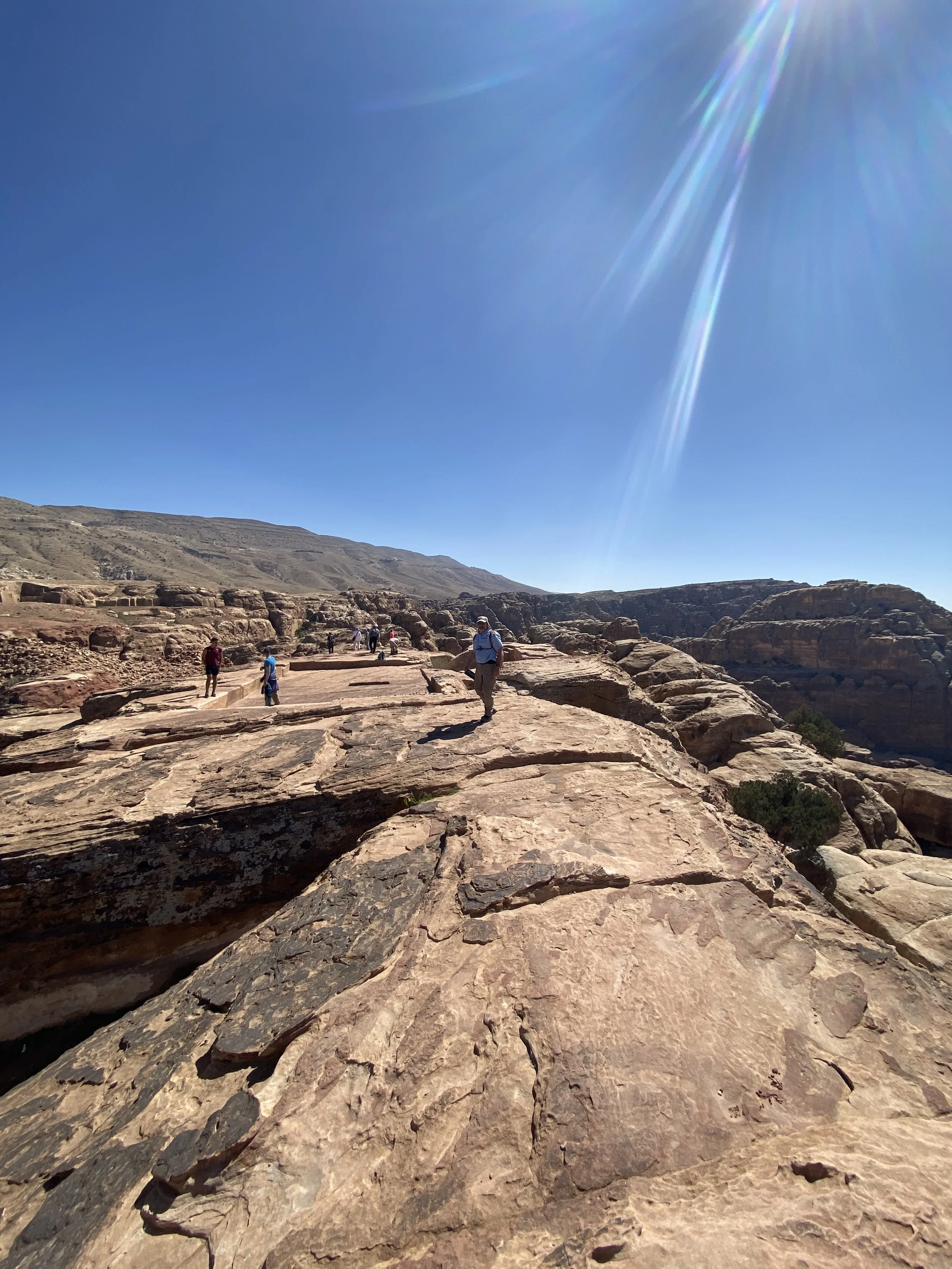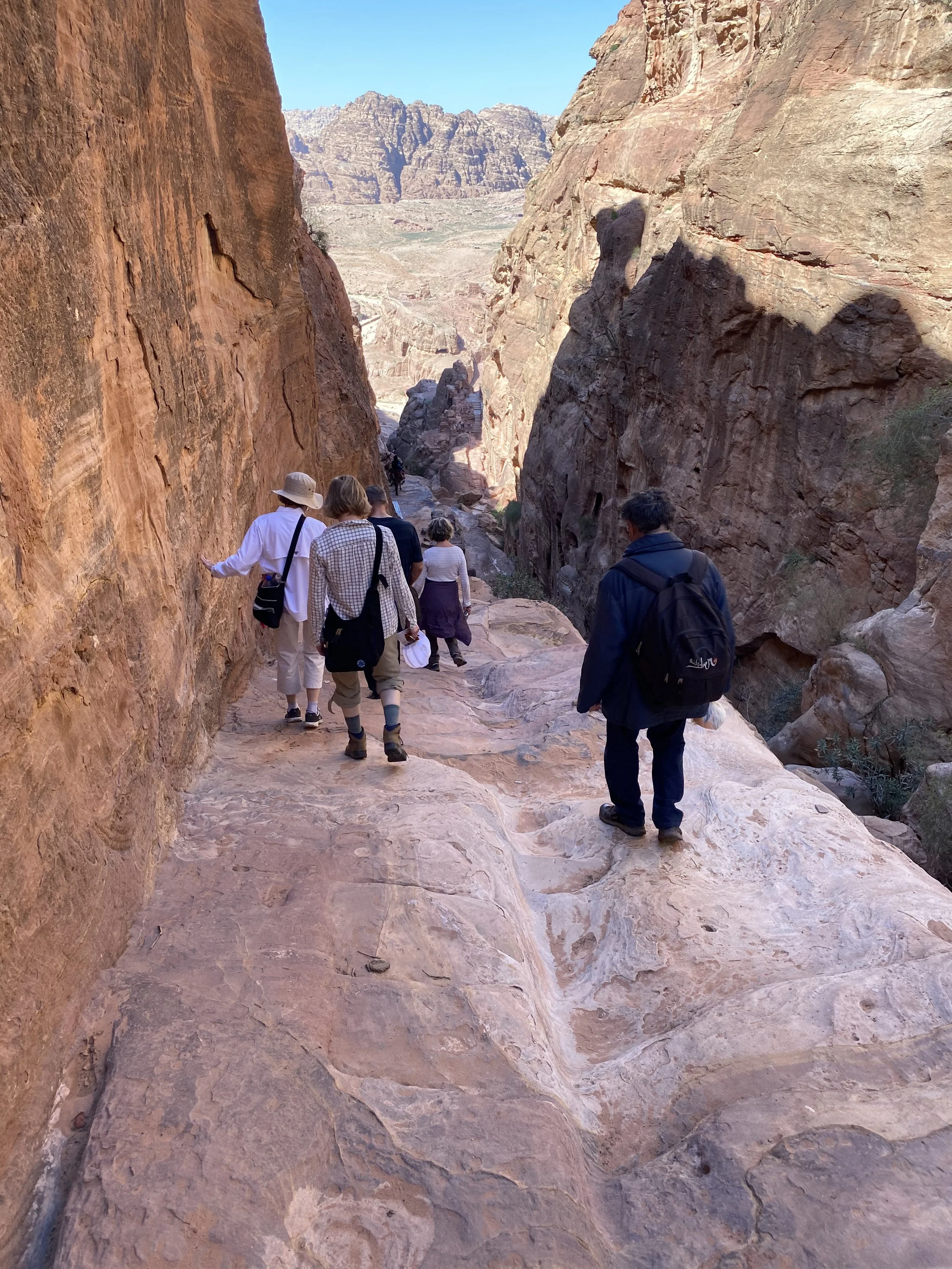High Place of Sacrifice, Petra Jordan
“And the Lord spoke to Moses in the plains of Moab by the Jordan at Jericho saying, Speak to the people of Israel and say to them, when you pass over the Jordan into the land of Canaan, then you shall you shall dispossess all the land’s occupants as you go, and destroy all their carved stones…and demolish all their high places”. Numbers 33:50-53
Archeologists have found that the language for the concept of “high places” and the sites themselves evolved over time to refer to religious installations and less to their height or location. These often were at the highest point of a settlement or city or a high point in the surrounding area, but eventually the term didn’t necessarily refer to geographical elevation. God warned the Israelites about the Canaanite high places and the worship of false gods at these site. We also have example of “high places” where Yahweh, the true God was worshipped.
Common features of Canaanite high places were standing stones, an altar for sacrifices, a holy tree or pole or grove called an asherah. There were sometimes carved or sculpted images of a Canaanite god. Tell Dan has an example of a high place of worship, installed by Jeroboam in the 10th century BC to try and prevent his people in the northern kingdom from going to Jerusalem to worship. This is large square plaza with an area that housed a shrine, a place for sacrifices and enclosed by a wall.
One remarkable example of a well preserved high place outside of Israel is at Petra, Jordan. This high place was used by the Nabataeans in the 4th - 3rd century BC. The 700 steps up to the site are somewhat soften by the spectacular scenery and views of the monuments below. Near the top are two obelisks carved out of the rock each about 20 feet tall and perhaps representing two Nabataean deities. The site has rectangular platform with a low wall around it - a pool of sorts. There is an altar with a niche and channel to drain the blood of the sacrifices. There is a long bench which may have been used for the preparation of sacrifices. Another altar is a low pan that may have been for fire.
Altar at the High Place of Sacrifice at Petra, Jordan

















